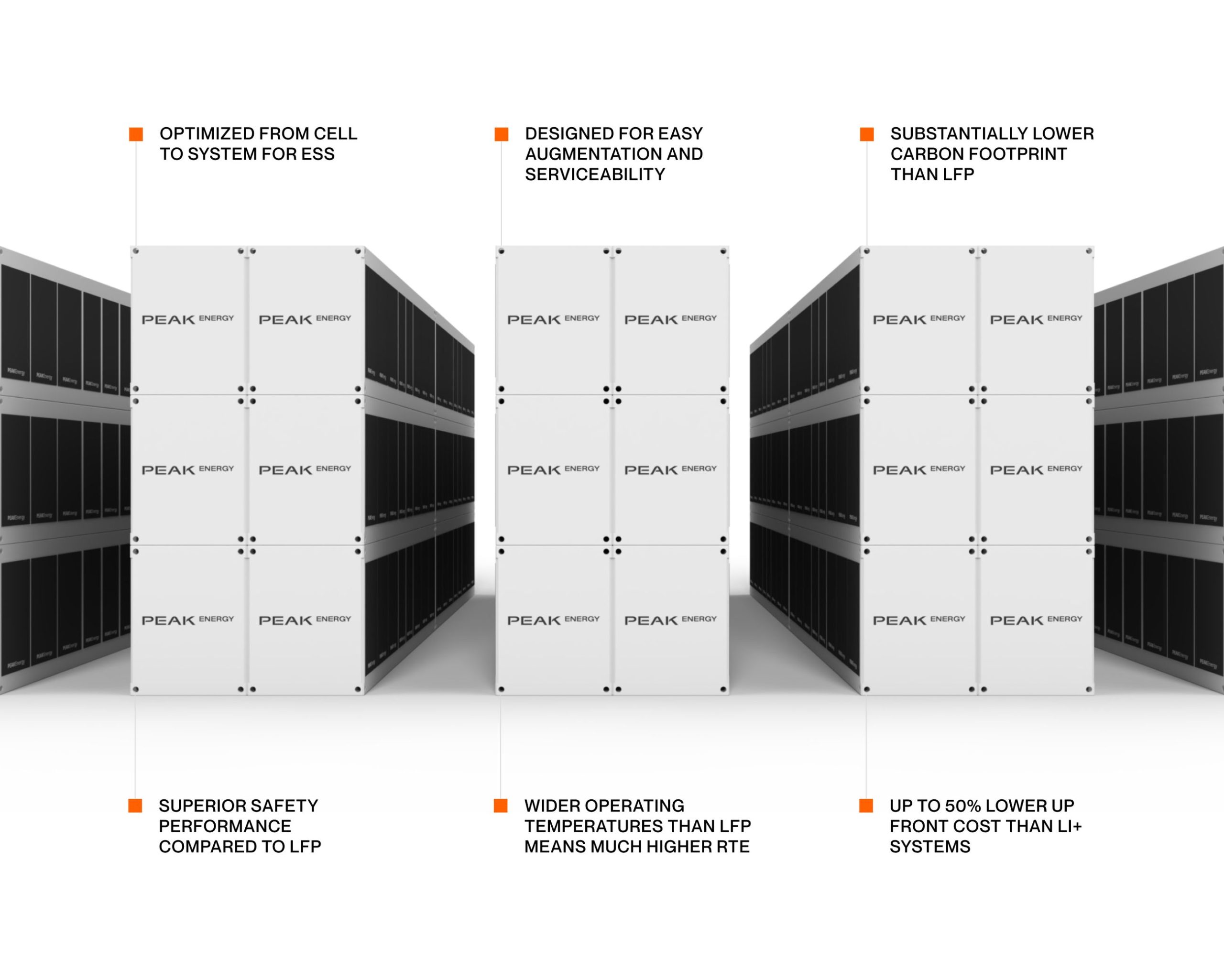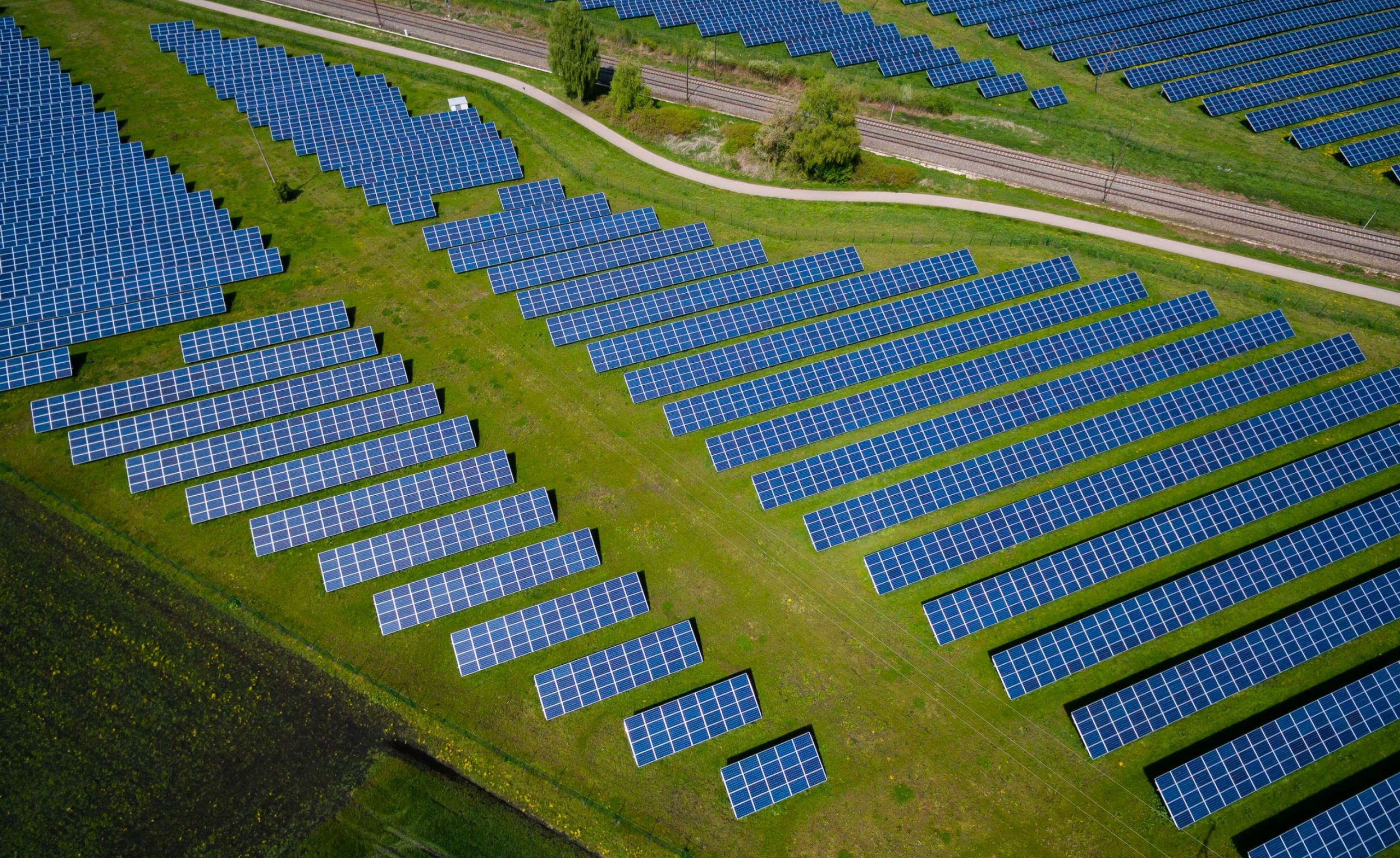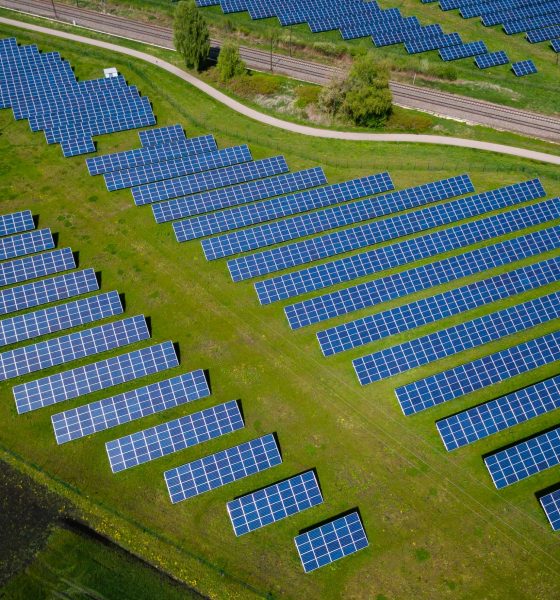Transitioning to renewable energy requires a multi-faceted approach, and power storage from sources such as solar and wind energy will play an increasingly important role in that playbook in the future. To tackle this problem, former Northvolt and Tesla workers have joined forces to focus on the scalability of battery production with the new company Peak Energy.
Peak Energy aims to mass-produce giant battery storage systems for renewable sources such as wind and solar (via CNBC). CEO and Founder Landon Mossburg formerly worked at Tesla and went on to work as an executive at Northvolt before founding Peak Energy earlier this year.
The company plans to scale a more affordable battery chemistry than the lithium-ion batteries used in Tesla’s Megapacks, instead hoping to produce large-scale battery systems with lower-density, lower-cost sodium-ion technology.
Since the company plans to mass-scale an existing product, Peak Energy President and COO Cameron Dales notes that they don’t consider the company a startup, although it only started in June. Interestingly, Peak Energy is looking to partner with a technology company specializing in battery tech, but specifically one that doesn’t yet have the ability to scale its products.
“A normal Silicon Valley startup is 10 years in the lab, come up with a better mousetrap and go to market. We’re completely the opposite,” Dales told CNBC in an interview.
The company plans to make individual sodium-ion battery cells, roughly the size of a loaf of bread, according to Dales. These cells will then be used together to make larger modules about the size of a filing cabinet. These filing cabinet modules could be deployed at solar or wind farms at volumes of 50-100 per order.
Credit: Peak Energy
With 100 blocks, Mossburg explains, the battery system is expected to be able to power as many as 62,500 homes for up to four hours.
He also thinks that the company’s battery systems could cost around half the cost of a Tesla Megapack’s $1.3 million before installation, though it’s still too early for the company to have a price on its products.
“In the battery market it turns out the rarest commodity is not the technology — there are many excellent ideas out there at academic labs and startups — but rather the ability to scale to manufacturing,” Mossburg said. “The difficulty of manufacturing scale up is one of the reasons you see so many ‘breakthrough battery technology’ announcements but very very few companies who actually reach market.”
The company has also announced a $10 million funding round led by Eclipse Ventures’ Greg Reichow, a former Tesla executive who was in charge of battery, motor and electronics manufacturing before going on to lead global manufacturing. Crucially, Dales points out to CNBC that Reichow also led the development of Tesla’s Giga Nevada battery factory with partner Panasonic, which he considers the first mass-scale battery factory in the world.
TDK Ventures, owned by Japanese multinational electronics manufacturer TDK, will also join the funding round.
“The number one issue we face as it relates to expanding renewable energy sources is storage,” Reichow said. “This problem must be solved, but the existing approaches using lithium-ion and other technologies are not yet at a price point that enables the kind of scaling that society needs across sectors.”
The U.S. Energy Information Administration forecasts battery storage capacity to increase from just 9 gigawatts last year to as much as 49 GW by 2030 before jumping to 247 GW in 2050. This projection shows demand for mass-scale battery storage will continue to grow, especially as transportation and other sectors shift toward renewable energy sources.
Peak Energy currently hopes to produce “double digit gigawatt” amounts of battery cells by 2030, set to be used for its own battery systems and other applications. According to Mossburg, building a battery factory will take between $50 million and $100 million per GW. He also says a 30 GW factory would have between 2,000 and 3,000 workers, requiring a 1-2 million square-foot space.
Mossburg has experience scaling battery production at Northvolt, founded by former Tesla Global Head of Sourcing and Supply Chain Peter Carlsson, who worked for the automaker from 2011-2015. By the time Mossburg left Northvolt, the company had grown to employ 4,000 people from just 300 only 18 months prior.
″We’re running a playbook which I and the rest of the executive team initially demonstrated and deployed at Northvolt,” Mossburg said.
Tesla Megapack powers new 196 MWh battery storage system in Europe
What are your thoughts? Let me know at zach@teslarati.com, find me on X at @zacharyvisconti, or send your tips to us at tips@teslarati.com.

News
Tesla wins another award critics will absolutely despise
Tesla earned an overall score of 49 percent, up 6 percentage points from the previous year, widening its lead over second-place Ford (45 percent, up 2 points) to a commanding 4-percentage-point gap. The company also excelled in the Fossil Free & Environment category with a 50 percent score, reflecting strong progress in reducing emissions and decarbonizing operations.

Tesla just won another award that critics will absolutely despise, as it has been recognized once again as the company with the most sustainable supply chain.
Tesla has once again proven its critics wrong, securing the number one spot on the 2026 Lead the Charge Auto Supply Chain Leaderboard for the second consecutive year, Lead the Charge rankings show.
NEWS: Tesla ranked 1st on supply chain sustainability in the 2026 Lead the Charge auto/EV supply chain scorecard.
“@Tesla remains the top performing automaker of the Leaderboard for the second year running, and increased its overall score by 6 percentage points, while Ford only… pic.twitter.com/nAgGOIrGFS
— Sawyer Merritt (@SawyerMerritt) March 4, 2026
This independent ranking, produced by a coalition of environmental, human rights, and investor groups including the Sierra Club, Transport & Environment, and others, evaluates 18 major automakers on their efforts to build equitable, sustainable, and fossil-free supply chains for electric vehicles.
Tesla earned an overall score of 49 percent, up 6 percentage points from the previous year, widening its lead over second-place Ford (45 percent, up 2 points) to a commanding 4-percentage-point gap. The company also excelled in the Fossil Free & Environment category with a 50 percent score, reflecting strong progress in reducing emissions and decarbonizing operations.
Perhaps the most impressive achievement came in the batteries subsection, where Tesla posted a massive +20-point jump to reach 51 percent, becoming the first automaker ever to surpass 50 percent in this critical area.
Tesla achieved this milestone through transparency, fully disclosing Scope 3 emissions breakdowns for battery cell production and key materials like lithium, nickel, cobalt, and graphite.
The company also requires suppliers to conduct due diligence aligned with OECD guidelines on responsible sourcing, which it has mentioned in past Impact Reports.
While Tesla leads comfortably in climate and environmental performance, it scores 48 percent in human rights and responsible sourcing, slightly behind Ford’s 49 percent.
The company made notable gains in workers’ rights remedies, but has room to improve on issues like Indigenous Peoples’ rights.
Overall, the leaderboard highlights that a core group of leaders, Tesla, Ford, Volvo, Mercedes, and Volkswagen, are advancing twice as fast as their peers, proving that cleaner, more ethical EV supply chains are not just possible but already underway.
For Tesla detractors who claim EVs aren’t truly green or that the company cuts corners, this recognition from sustainability-focused NGOs delivers a powerful rebuttal.
Tesla’s vertical integration, direct supplier contracts, low-carbon material agreements (like its North American aluminum deal with emissions under 2kg CO₂e per kg), and raw materials reporting continue to set the industry standard.
As the world races toward electrification, Tesla isn’t just building cars; it’s building a more responsible future.
News
Tesla Full Self-Driving likely to expand to yet another Asian country
“We are aiming for implementation in 2026. [We are] doing everything in our power [to achieve this],” Richi Hashimoto, president of Tesla’s Japanese subsidiary, said.

Tesla Full Self-Driving is likely to expand to yet another Asian country, as one country seems primed for the suite to head to it for the first time.
The launch of Full Self-Driving in yet another country this year would be a major breakthrough for Tesla as it continues to expand the driver-assistance program across the world. Bureaucratic red tape has held up a lot of its efforts, but things are looking up in some regions.
Tesla is poised to transform Japan’s roads with Full Self-Driving (FSD) technology by 2026.
Richi Hashimoto, president of Tesla’s Japanese subsidiary, announced the ambitious timeline, building on successful employee test drives that began in 2025 and earned positive media reviews. Test drives, initially limited to the Model 3 since August 2025, expanded to the Model Y on March 5.
Once regulators approve, Over-the-Air (OTA) software updates could activate FSD across roughly 40,000 Teslas already on Japanese roads. Japan’s orderly traffic and strict safety culture make it an ideal testing ground for autonomous driving.
Hashimoto said:
“We are aiming for implementation in 2026. [We are] doing everything in our power [to achieve this].”
The push aligns with Hashimoto’s leadership, which has been credited for Tesla’s sales turnaround.
In 2025, Tesla delivered a record 10,600 vehicles in Japan — a nearly 90% jump from the prior year and the first time exceeding 10,000 units annually.
BREAKING 🇯🇵 FSD IS LIKELY LAUNCHING IN JAPAN IN 2026 🚨
Richi Hashimoto, President of Tesla’s Japanese subsidiary, stated: “We are aiming for implementation in 2026” and added that they are “doing everything in our power” to achieve this 🔥
Test drives in Japan began in August… pic.twitter.com/jkkrJLszXN
— Ming (@tslaming) March 5, 2026
The strategy shifted from online-only sales to adding 29 physical showrooms in high-traffic malls, plus staff training and attractive financing offers launched in January 2026. Tesla also plans to expand its Supercharger network to over 1,000 points by 2027, boosting accessibility.
This Japanese momentum reflects Tesla’s broader international expansion. In Europe, Giga Berlin produced more than 200,000 vehicles in 2025 despite a temporary halt, supplying over 30 markets with plans for sequential production growth in 2026 and battery cell manufacturing by 2027.
While regional EV sales faced headwinds, the factory remains a cornerstone for Model Y deliveries across the continent.
In Asia, Giga Shanghai continues to be recognized as Tesla’s powerhouse. China, the company’s largest market, saw January 2026 deliveries from the plant rise 9 percent year-over-year to 69,129 units, with affordable new models expected later this year.
FSD advancements, already progressing in the U.S. and South Korea, are slated for Europe and further Asian rollout, complementing plans to expand Cybercab and Optimus to new markets as well.
With OTA-enabled autonomy on the horizon and retail strategies paying dividends, Tesla is strengthening its footprint from Tokyo showrooms to Berlin assembly lines and Shanghai exports. As Hashimoto continues to push Tesla forward in Japan, the company’s global vision for sustainable, self-driving mobility gains traction across Europe and Asia.
News
Tesla ships out update that brings massive change to two big features
“This change only updates the name of certain features and text in your vehicle,” the company wrote in Release Notes for the update, “and does not change the way your features behave.”

Tesla has shipped out an update for its vehicles that was caused specifically by a California lawsuit that threatened the company’s ability to sell cars because of how it named its driver assistance suite.
Tesla shipped out Software Update 2026.2.9 starting last week; we received it already, and it only brings a few minor changes, mostly related to how things are referenced.
“This change only updates the name of certain features and text in your vehicle,” the company wrote in Release Notes for the update, “and does not change the way your features behave.”
The following changes came to Tesla vehicles in the update:
- Navigate on Autopilot has now been renamed to Navigate on Autosteer
- FSD Computer has been renamed to AI Computer
Tesla faced a 30-day sales suspension in California after the state’s Department of Motor Vehicles stated the company had to come into compliance regarding the marketing of its automated driving features.
The agency confirmed on February 18 that it had taken a “corrective action” to resolve the issue. That corrective action was renaming certain parts of its ADAS.
Tesla discontinued its standalone Autopilot offering in January and ramped up the marketing of Full Self-Driving Supervised. Tesla had said on X that the issue with naming “was a ‘consumer protection’ order about the use of the term ‘Autopilot’ in a case where not one single customer came forward to say there’s a problem.”
This was a “consumer protection” order about the use of the term “Autopilot” in a case where not one single customer came forward to say there’s a problem.
Sales in California will continue uninterrupted.
— Tesla North America (@tesla_na) December 17, 2025
It is now compliant with the wishes of the California DMV, and we’re all dealing with it now.
This was the first primary dispute over the terminology of Full Self-Driving, but it has undergone some scrutiny at the federal level, as some government officials have claimed the suite has “deceptive” names. Previous Transportation Secretary Pete Buttigieg was one of those federal-level employees who had an issue with the names “Autopilot” and “Full Self-Driving.”
Tesla sued the California DMV over the ruling last week.










